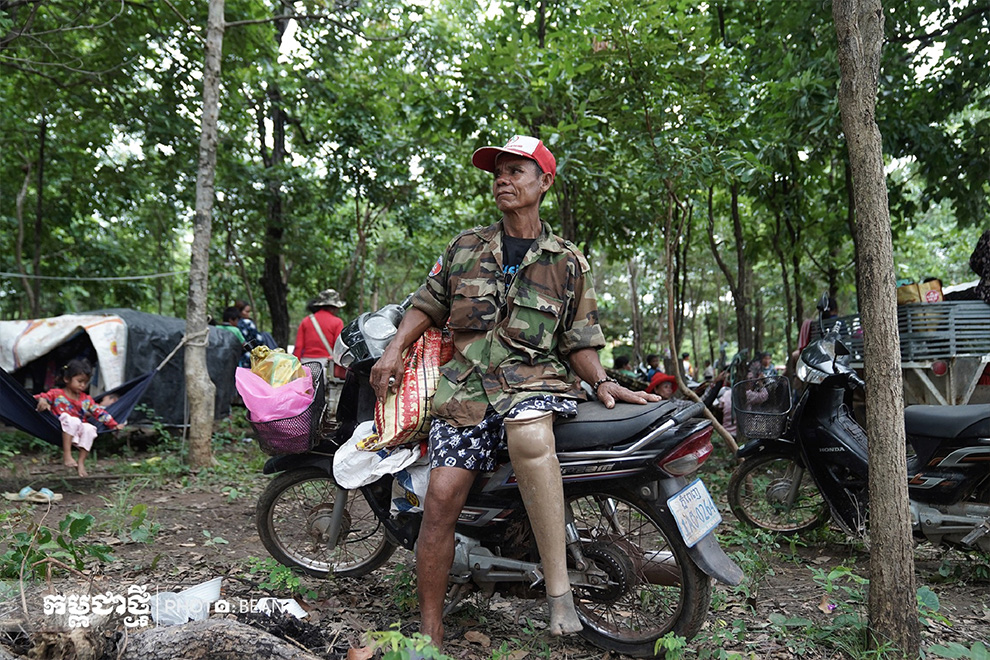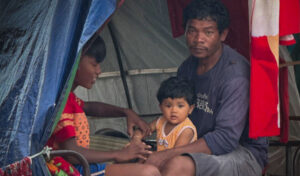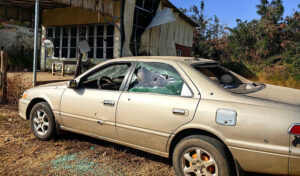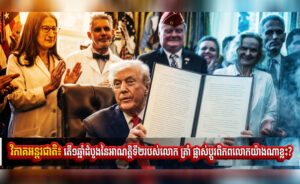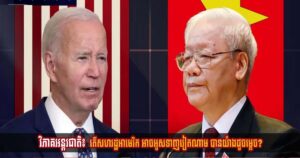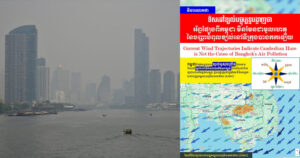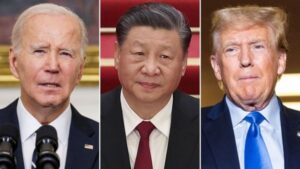Opinion: How should the world respond to Thailand’s grave acts of aggression?
Displaced people from the border region of Banteay Ampil district, Oddar Meanchey province on July 24. Kampuchea Thmey
The Phom Penh Post | For decades, Thailand has repeatedly violated Cambodia’s sovereignty through military incursions, economic pressure and diplomatic defiance. These violations, largely ignored by the international community, are not accidental or isolated. They are part of a clear and calculated pattern of aggression, designed to expand territorial control at Cambodia’s expense.
Today, as tensions once again rise along our border, Cambodia is compelled to speak clearly and truthfully: Thailand’s actions are not defensive, they are invasive. This is not a border dispute. This is a direct, deliberate and dangerous assault on Cambodia’s territorial integrity.
Thailand, emboldened by its larger economy and superior military capacity, has long acted on the belief that it can impose its will on its smaller neighbour without consequence.
This belief has shaped a reckless policy of coercion, one that has included: troop mobilisations into Cambodian territory; unilateral border closures that disrupt trade and hurt local livelihoods, and recently, the deployment of US-made F-16 fighter jets, escalating fear and destabilising the region.Thailand’s aggression is not only a violation of international norms, it is a threat to peace and stability in Southeast Asia.
Cambodia Seeks Peace, Not War
In the face of these provocations, Cambodia has shown extraordinary restraint. Our history marked by decades of civil war, conflict and recovery has taught us the true cost of violence. War is not a path we will choose.
Cambodia has repeatedly called for respectful diplomacy, and most importantly, peaceful arbitration through the International Court of Justice (ICJ). Our position is simple and consistent: We want justice, not conflict, but peace requires two parties. However, Thailand has refused to engage meaningfully or legally.
Why Does Thailand Fear the ICJ?
Cambodia’s claims, particularly around the Preah Vihear Temple and its surrounding area are grounded in historical fact and backed by the ICJ’s 1962 ruling, which clearly awarded the temple to Cambodia. Maps, treaties and legal precedent confirm that the disputed land lies within Cambodian territory. Yet Thailand refuses to return to the ICJ. The reason is clear: Thailand fears the truth.
This is not a show of confidence; it is an admission of legal weakness. And so, instead of accepting international arbitration, Thailand has turned to military intimidation and regional destabilisation.
Cambodia Appeals to the UN
Yesterday, July 24, Cambodia formally submitted a letter to Asim Iftikhar Ahmad, permanent representative of Pakistan to the UN and rotating president of the Security Council for the month, requesting an urgent Security Council meeting to address Thailand’s grave and escalating aggression.
This is not a call for conflict. It is a final plea for peace from a small country doing everything it can to avoid war while facing a neighbour that uses force, not law, to assert its claims.
Our request is grounded in international responsibility. Cambodia is asking the world to see the situation clearly, without bias or political convenience. This is not just a bilateral issue, it is a regional crisis.
When might tries to silence justice
Throughout history, the world has rightly condemned larger powers that attempt to dominate smaller nations through military force or economic bullying. Cambodia is no different. Thailand’s current behaviour mirrors the very forms of aggression that the international community has opposed elsewhere, and yet, in this case, silence prevails.
Why should Southeast Asia be the exception?
Why should Cambodia stand alone simply because it lacks oil, global influence, or strategic sea lanes? sovereignty is not a privilege of powerful nations, it is a right of all.
Thailand is not defending itself. It is expanding its reach, hiding behind ambiguity and using weapons of war to claim land that does not belong to it. These actions do not just threaten Cambodia, they undermine regional stability and violate the principles upon which peaceful coexistence is built.
The World Must Not Look Away
The question now is not whether Cambodia wants peace. We do. The question is whether the world is prepared to recognize and respond to aggression when it is plainly visible. Cambodia calls on the global community to see clearly, to speak honestly, and to uphold the principles of justice, law and peace. Smaller and weaker countries also deserve peace, respect, attention, and protection.
Neang Sopheap is a Phnom Penh-based social commentator. The views and opinions expressed are his own.

